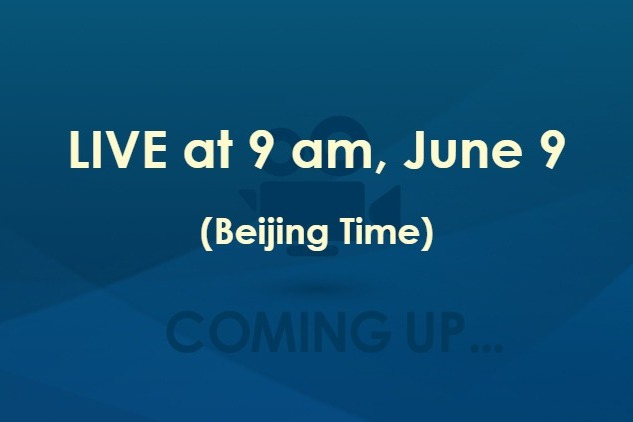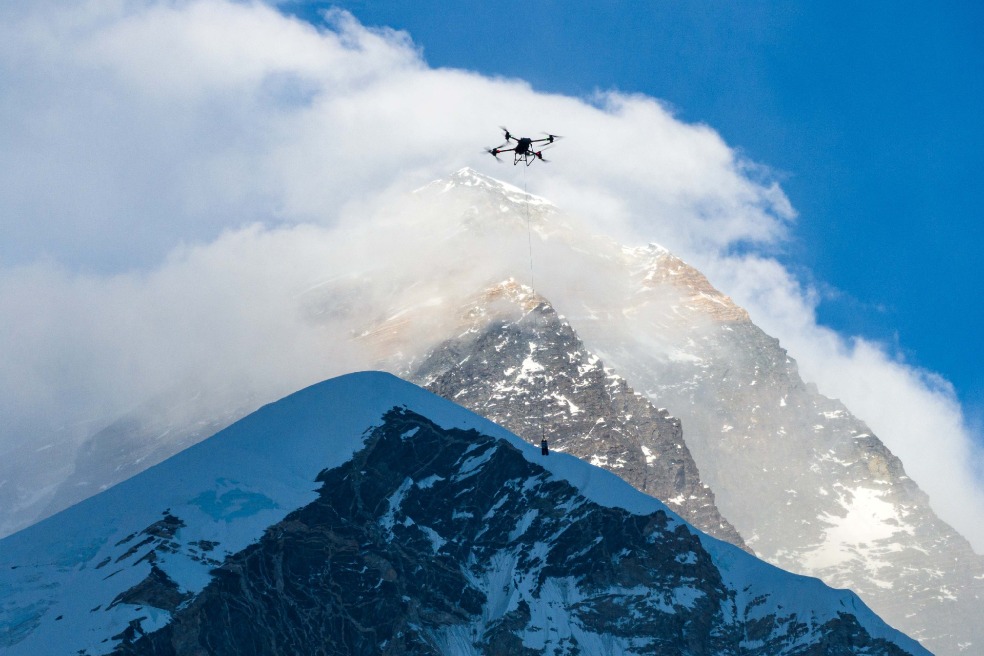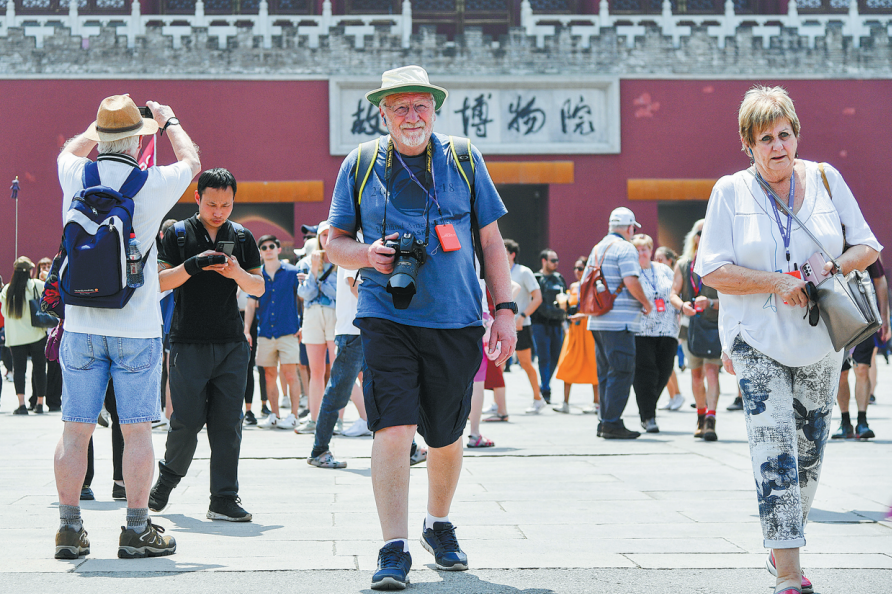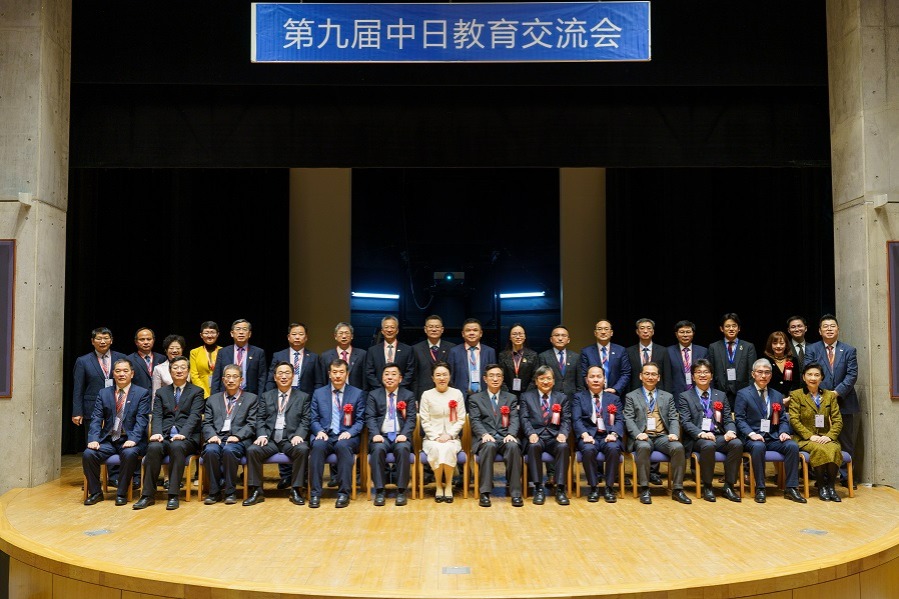Chang'e 6 brings moon's far side touch nearer

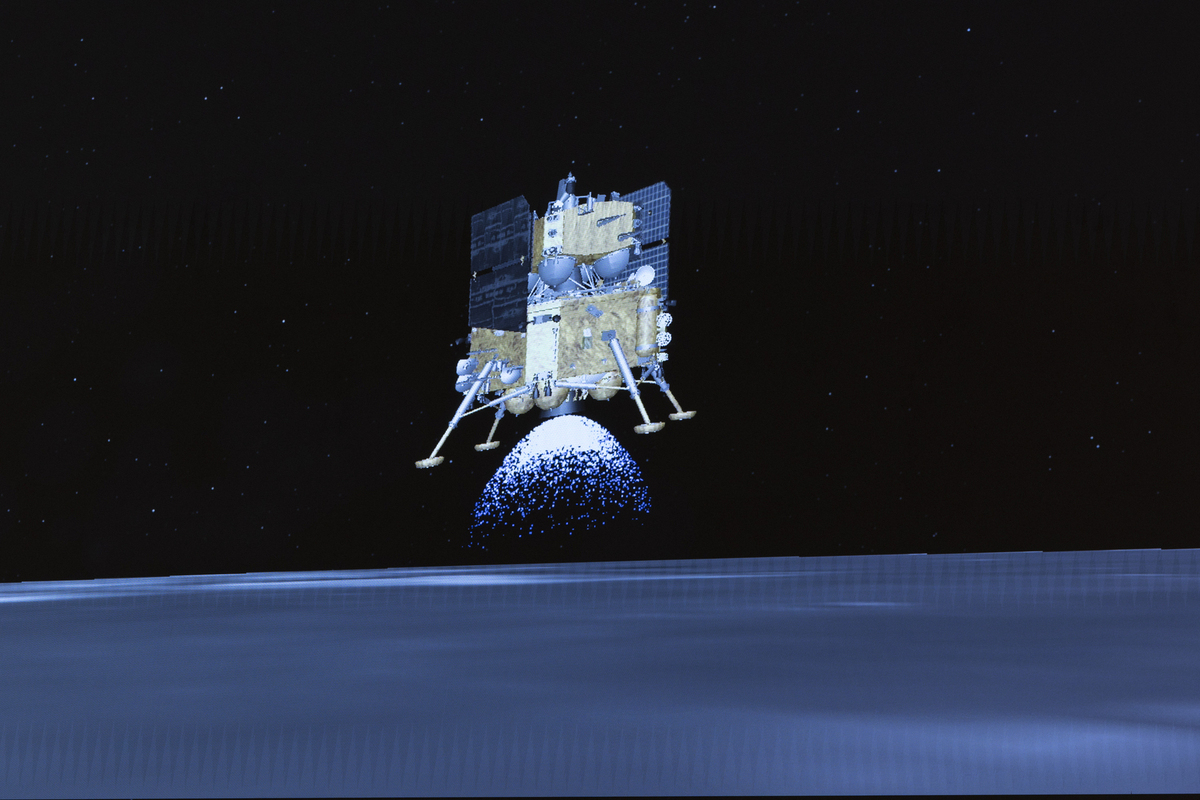
Supported by the Queqiao 2 relay satellite, the lander-ascender combination of the Chang'e 6 probe landed at the designated landing area on the far side of the moon early on Sunday morning.
Chang'e 6 consists of an orbiter, a returner, a lander and an ascender. Since its launch on May 3 this year, it has gone through various stages such as Earth-moon transfer, near-moon braking, lunar orbiting and landing descent. The lander-ascender combination separated from the orbiter-returner combination on May 30.
The Chang'e 6 mission is tasked with collecting and returning samples from the moon's far side, the first endeavor of its kind in the history of human lunar exploration. It has achieved a breakthrough in the design and control technology of the lunar retrograde orbit and aims to realize key technologies of intelligent and rapid sampling, as well as takeoff and ascent from the far side of the moon.
The landing site is the South Pole-Aitken basin, which was chosen for its potential scientific exploration value, as well as the conditions of the landing area, including communication and telemetry conditions and the flatness of the terrain. The terrain on the far side of the moon is more rugged than the near side, with fewer continuous flat areas. However, the basin is relatively flatter than other areas on the far side, which is conducive to landing.
After the landing, the probe is scheduled to complete sampling within two days. It will employ two methods of moon sampling, namely using a drill to collect subsurface samples and grabbing samples from the surface with a robotic arm.
Due to the moon's obstruction, the Earth-moon communication window period on the far side of the moon, even with the help of the Queqiao 2 relay satellite service, is still shorter than that on the near side. Therefore, the sampling time of Chang'e 6 will be reduced to about 14 hours, compared with the 22 hours of its predecessor Chang'e 5, which collected samples from the near side of the moon.
-XINHUA NEWS AGENCY
















